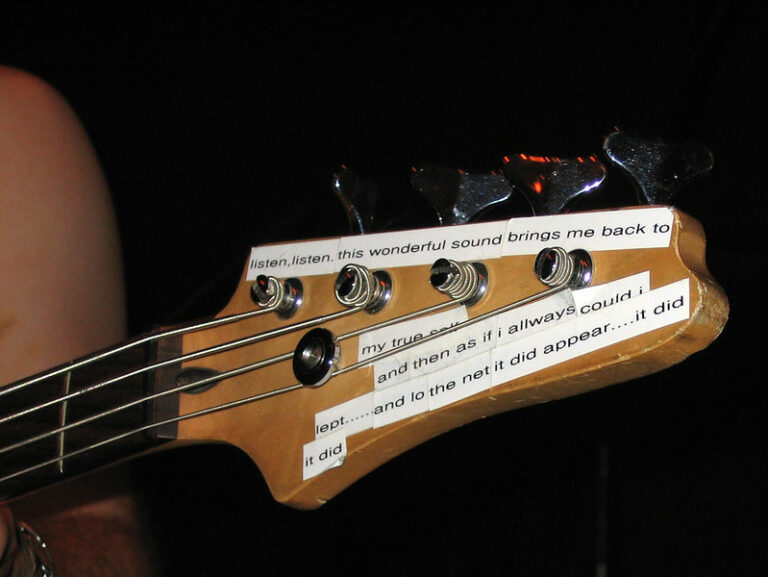What is a music attorney?
For aspiring musicians, understanding what a music attorney is and what they do is vital if you want to go pro. After all, they are a lifeline for any professional musician.
When you learn just what is a music attorney, you will discover they are experts in all areas of music law, including handling contracts and record deals, negotiating media rights, and sorting out issues around copyright.
Having a legal expert makes life much easier for any serious professional musician. They protect your identity and help you tackle all the big moments you may face as your career evolves.
With that in mind, it’s worth seeking a legal expert whenever necessary. But just what is a music attorney?
Music attorney – what makes them unique?
A music attorney (or music lawyer) is a specialized attorney that addresses legal issues in the music industry. They specialize in music-related issues like recording contracts, publishing deals, and other music business agreements.
Music lawyers are an essential part of any budding music career. They go to law schools like any other legal professional but focus on issues in the entertainment industry.
What makes them different from other lawyers is that they spend less time in the courtroom and more time making deals. This means they fall under a group known as transactional lawyers (representing they are lawyers that help facilitate exchanges).
Entertainment lawyers are a more generalized form of this. But regardless of whether they are purely in the music or overall entertainment business, they all perform similar activities.
What does a music attorney do?
The most important thing to recognize about music attorneys is they aren’t specialists in just one area. That is the last thing you want.
You will find that these lawyers are experts in multiple areas of commercial and even criminal law. The reason for this: the music world covers various strands of the legal system.
It’s why lawyers who represent musicians and bands are trained in various areas such as:
- Negotiating and finalizing contracts
- Handling image rights
- All copyright issues
- Music licensing
- Criminal and civil lawsuits and cases
As you can see, your ideal expert is a jack of all trades. So how does this relate specifically to the music industry? Well, let’s take a look at some situations where they are essential.
Where you need a music attorney
Negotiating Deals
Perhaps the most critical part of any musician’s career – finalizing and signing a contract. Before pitching headfirst into any deal – you need someone to look over it. This ensures everything is fair and beneficial for you.
This is where you call in your legal representative. They will examine a document – the conditions, amounts, and lengths- and advise on whether it’s fair.
If things aren’t up to scratch, they can advise on what can be changed and how to revise the document. They can also represent you with whatever party you are drawing up a deal with.
Settling a contract isn’t just with record labels, though. This can be linked to contracts in any aspect of your career. This could be with:
- Sponsors
- Tour promoters
- Collaborating artists
- Members of your professional team
Once you’re happy with everything, they will advise you to send it and ensure that legal copies are sent and kept with all necessary parties simultaneously.
Copyright & licensing
Music and copyright laws are always a fickle web to weave. Copyright law covers almost anything to do with what a song is involved with.
Therefore, you should consult your music attorney whenever these laws are needed to be negotiated when making a song or album.
Whenever you release new material, it will be your lawyer that helps you license and copyright your original work. That goes from registering with the proper authorities to ensuring it doesn’t breach existing laws.
If you want to use a sample in your music, then your legal representative will ensure you can use it. How? They will reach out to the legal reps of whoever owns the publishing rights and get clearance for you to use it in a song.
Doing this avoids unwanted lawsuits waiting on your doorstep and ensures you get the most from the material you have produced.
Handling lawsuits
Being in an intense industry like the music business means you are always in a high-pressure cauldron. The rise to fame and a celebrity profile may sometimes attract the wrong headlines.
This could be from dealing with plagiarism claims to even more serious issues such as stalkers or unwanted paparazzi intrusions.
Of course, you will need legal advice should you ever get involved in these situations. You can consult them on the right action and how to pursue things. This could be keeping things private and settling out of court if necessary or having them represent you in a courtroom.
Having an attorney well-versed in all sorts of law matters is extremely important, as they can help you handle almost any situation.
How music attorneys can vary for different music industry groups
You will find that all facets of the music industry will have legal representatives in one way or another. Not just artists themselves.
Companies, songwriters, producers, and even roadies may seek a lawyer to negotiate different aspects of their professional lives.
But how do attorneys vary for these different stars?
Backstage personnel
For anyone who isn’t the star, having an attorney often plays a big part in getting the royalties or recognition they may deserve.
For those involved in the recording process, it can be a matter of getting the recognition they deserve. This can be anything from a mixing credit to being a featured artist on a song.
If you are a songwriter or producer, you will need an attorney to get you the royalties from the track. This can be through defining the difference between recording and licensing rights and determining percentages of royalties from use in media.
Companies
For businesses, using an attorney is vital to negotiating any deal with any party within the industry.
Record companies will often have at least one attorney they consult with and maybe even have specialist representatives within their business to handle all legal matters.
However, other companies may not always be that lucky. Smaller businesses, such as promoters and suppliers, would need to consult an attorney for any deals they have in mind.
For example, if a tour promoter wants a particular act on their bill, they will need to reach out to their lawyers to reach a deal to get them to come.
Furthermore, they will also need a lawyer to sign sponsors for their show and bring in additional revenue. Here, an attorney would help settle fees relating to the deal and how it would be brokered.
By doing this, it ensures everyone is covered and that events can go ahead without a hitch. Of course, attorneys can advise promoters on how to act should anything go awry.
What to look for in a music attorney
It’s all well and good knowing what music attorneys do, but how does that help you pick someone to help you out? After all, everyone will have different strengths and expertise.
When it comes to selecting the right representative, think about several aspects, such as:
- Depth of knowledge
- Character
- Fees
- Location
All these aspects will be crucial when making your final choice, so it is wise to select carefully. But what should you look for?
Depth of knowledge
Of course, their knowledge is what you seek most. However, think long and hard about the purpose of what you want your attorney for.
Some music attorneys are all-rounders and can help you regardless of what you are after. But not everyone is like that.
You might discover that someone might be great at negotiating deals but not so strong at defending any issues surrounding copyright.
When you meet an attorney as a prospective client, don’t be afraid to ask questions about what they specialize in and how it applies to your situation.
This ensures that you always get the best outcome from your meeting and let you walk away knowing whether that lawyer is right for you.
Character & personality
Someone’s character is just as important to gel with as is their knowledge base. It’s why you need to think deeply about whether that particular person is right for you.
Likely, hiring a legal representative for your band will hardly be a one-off affair. Therefore, a strong bond is essential with whoever you choose.
Firstly, you don’t have to become best friends with them should you not wish to. However, having a solid bond does reap some better rewards.
Knowing a representative will allow you to understand how each other works professionally and how you react to things.
This can be highly beneficial as it lets your representative know what works in your best interests. For example, if your lawyer knows that you don’t have a high tolerance for negotiating, they may play harder for the terms you want in a particular deal. This allows them to get things down without stressing you – their client – out and get things nailed out faster.
On top of that, it will provide much more security, should you wish. Building that bond of trust means that you can let them represent you on your behalf without having to worry about being at every single deal you sign and make things much less stressful down the line.
It’s why finding an attorney you bond with – both in terms of personality and traits – works wonders for your long-term career.
Location
Believe it or not, the location of your representative makes a big difference if you aren’t careful. Regardless of their expertise, most attorneys will have a more substantial knowledge of their immediate area.
This comes as state bodies register attorneys – not federal – meaning that some laws may vary depending on where you are.
It means that hiring a music attorney in LA would be different from hiring one based in New York or Miami, especially if states have different laws in some areas.
A good example is that contract agreements vary significantly in both cities. In New York, if you signed a non-compete clause with a label, you would be held to the duration of that agreement even after you were no longer with that company. However, California law voids non-complete clauses once two business entities part ways.
Therefore, if you think you will be based in more than one state, it may be wise to seek out attorneys who know the laws of each state you are in.
Thankfully, this isn’t the case for every deal involving a music attorney. Some topics – such as licensing and copyright – are mandated by federal law and are applicable no matter where you may be in the US.
Therefore, consider what you are hiring your music attorney for and decide whether their local knowledge will impact you and your band.
Price
When it comes to hiring any legal representative, don’t expect to be finding any cheap deals. Every decent lawyer knows their worth and will look to charge accordingly.
However, the way they charge can vary in several different ways. You will find that the most common types of fees are:
- By Hour
- Percentage
- Reduced/Deferred Fees
- On Retainer
These may seem obvious, but what do they mean?
By Hour
The most straightforward option – paying by the hour. In most major cities, don’t be surprised to see music attorneys charging an average of $400-$800/hour. These rates will vary depending on whether they are individuals or with a firm, so think about your budget before choosing this option.
Percentage
Rather than charging a flat rate, some specialists will ask for a percentage of fees earned through a particular deal. For example, if your lawyer secures a guaranteed amount when you sign, they might ask for a certain amount of the overall figure. This sits around the 5% mark, so keep that in mind before you sign if this is what you are looking for,
Reduced Fees
Getting the money to find a legal representative can be a real challenge for some upcoming acts. That is where seeking out specialist boards becomes an option. You will find that organizations offer free consults (pro bono) or reduced fee payments to support acts coming through the industry. These may not guarantee the same results as hiring a full representative, but it gives much-needed guidance to those still breaking out in the music world.
Whatever method you look to seek, it is always essential that you get copies of the terms agreed upon between yourself and your attorney. This includes getting statements underlining what you are paying for and how it is being paid. All this will ensure a healthy relationship between you and your attorney.
Wrap up
As you may have gathered, music attorneys are a vital part of the music industry, and finding the right one for you is not easy. You need to know what you are looking for in a representative and why you want to hire one.
For handling licensing rights or signing any commercial deal, having a good representative will take a long way. Always check about what the attorney knows, how much they will charge and how they bond with you to see whether they are the right person to represent you.
Discovering the right person for your needs will make handling complicated deals and jargon easier. That is why knowing just what is a music attorney is a vital part of any journey into the professional humdrum of the music industry.









